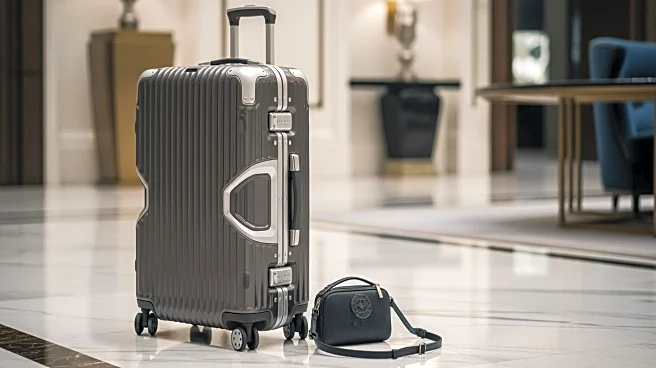What's Happening?
Modern Currency Public Relations has released its third annual Luxury Travel & Hospitality Trend Report Forecast for 2026, highlighting key trends that are expected to reshape the travel industry. Led by CEO Meghan Patke, the report identifies significant
cultural, behavioral, and economic forces influencing U.S. and global travel. Among the highlighted trends are the rise of sports tourism in U.S. cities, driven by major events like the World Cup and Olympics, and the resurgence of the Great American Roadtrip, particularly along Route 66. The report also notes a shift towards privacy as a status symbol, community-based wellness experiences, and sustainable design hotels. Additionally, the report emphasizes the growing importance of social media in shaping travel decisions, with platforms like TikTok influencing destination desirability.
Why It's Important?
The trends identified in the report have significant implications for the U.S. hospitality industry. As sports tourism gains momentum, cities hosting major events stand to benefit economically from increased visitor spending. The renewed interest in road trips and nostalgia-driven travel could boost domestic tourism, providing opportunities for local businesses and attractions. The emphasis on privacy and wellness reflects changing consumer preferences, prompting hotels and resorts to adapt their offerings to meet these demands. Furthermore, the influence of social media on travel decisions underscores the need for hospitality brands to engage with digital platforms to attract and retain customers. These trends suggest a shift towards more personalized and experience-driven travel, which could redefine industry standards and expectations.
What's Next?
As these trends unfold, hospitality businesses may need to innovate and adapt to remain competitive. This could involve investing in sustainable practices, enhancing privacy features, and leveraging social media for marketing. Cities preparing for major sports events will likely focus on infrastructure improvements and promotional strategies to maximize economic benefits. The industry may also see increased collaboration between travel brands and social media influencers to capitalize on digital engagement. Additionally, the integration of artificial intelligence in travel planning could further personalize experiences, offering tailored recommendations based on individual preferences. These developments could lead to a more dynamic and responsive hospitality sector, capable of meeting evolving consumer needs.
Beyond the Headlines
The report's emphasis on privacy and wellness highlights broader societal shifts towards self-care and mental health awareness. As travelers seek more meaningful and restorative experiences, the hospitality industry may play a crucial role in supporting these needs. The rise of sustainable design hotels reflects growing environmental consciousness, potentially driving long-term changes in construction and operational practices. Moreover, the convergence of fashion and hospitality suggests new opportunities for cross-industry collaborations, enhancing aesthetic appeal and cultural relevance. These deeper implications point to a future where travel is not just about destinations, but about enriching personal and communal well-being.















